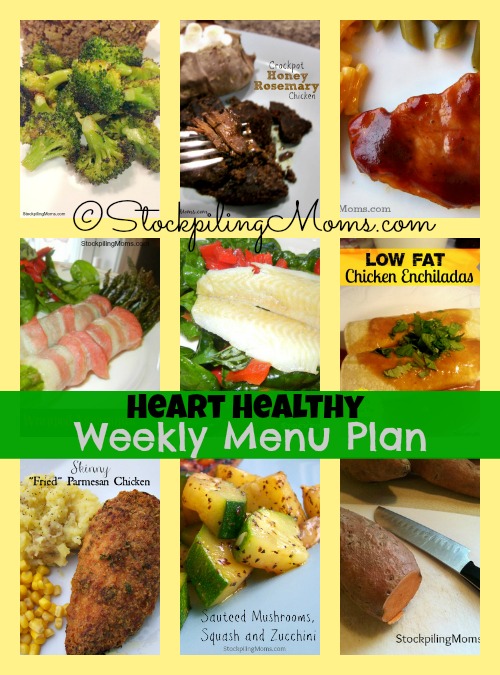
A vegetarian diet is an excellent choice, whether you want to improve your health or just to protect the environment. Vegetarians typically have a healthier lifestyle than non-vegetarians, and can live longer. This is especially important for mothers of babies and pregnant women. It also can provide complete nutrition for children.
You should consider whole grains and fruits when you prepare your meals. You should also avoid processed foods. They are often high-calorie and high in fat. Vegetarians should make sure to include calcium-rich and protein-rich foods in the diet. Eggs and dairy products are good sources of protein. Dairy products also contain calcium.
In addition to eating a wide variety of vegetables, fruits, and grains, vegetarians should consume more fiber. Fiber promotes fullness, and can be used to lose weight. Vegetarians should also consume less saturated fat and salt. Vegetarians also need to replace saturated oil with good fats like nuts or olive oil.

Vegetarians need to eat a wide variety of foods and also supplement their diets in vitamin B12. This vitamin can only be found in animal products and is essential for red blood cell development. As an older vegetarian, you might not be able to absorb the nutrient as well as you used to. To make sure you get enough, you will need a supplement. This vitamin is essential for the development of healthy brains in babies. Make sure you get enough.
Also, vegetarians need to ensure that they get enough vitamin D. Anemia and rickets can be caused by vitamin D deficiency. You can get enough vitamin D by eating foods fortified with vitamin D, such as fortified breakfast cereals. Alternatively, you can take a vitamin D supplement.
Another nutrient to pay attention to is iron. Iron is essential for healthy red blood cells. Iron can be found in dried beans, peas, enriched cereals and dark leafy-green vegetables. Vitamin C is essential for your body to absorb iron.
Registered dietitians can help you if your goal is to become a vegetarian. A registered dietitian can create a vegetarian food plan that will meet your nutritional needs. They can help you maintain a healthy diet and give advice on supplementation if needed. You can find a registered nutritionist in your area by using the Academy of Nutrition and Dietetics’ Find a Nutrition Expert database. On the Forks Over Knives site, you can find vegetarian recipes and meal plan ideas. The website also offers recipes and meal plans as well as a newsletter. It also educates the public on the health-benefits of a vegetarian diet.

Supplements with vitamin D should be taken by vegetarians. Vitamin D is necessary for good bones and teeth. It also helps babies develop their brains. Vegetarians are advised to eat at most five servings of fruits or vegetables daily and to limit their intake of saturated fats and salt.
FAQ
What should I be eating?
Take in lots of fruits and veggies. They provide vitamins and minerals to keep your immune systems strong. Fruits and veggies are also high in fiber, which makes them filling and helps with digestion. Include at least five portions of fruit and vegetables per day.
Get plenty of water. Water helps flush toxins out of your body and makes you feel fuller between meals. Drink about eight glasses each day.
Choose whole grains over refined ones. Whole grains contain all of their nutrients, including B vitamins and iron. Some nutrients have been removed from refined grains.
Avoid sugary drinks. Sugary drinks have empty calories and are a major contributor to obesity. Instead, drink water, milk, or unsweetened Tea.
Avoid fast food. Fast food lacks nutritional value. Fast food may be delicious, but it will not give you the energy that you need to perform your tasks properly. Use healthier options, such as soups, sandwiches, salads, and pasta.
Limit your alcohol consumption. Alcohol is a poor nutrient and has empty calories. Limit your intake to two alcoholic drinks per week.
Red meat consumption should be reduced. Red meats are high in saturated fat and cholesterol. Lean cuts of beef or pork, lamb and chicken, as well as fish and turkey, are better choices.
Here are five ways to lead a healthy lifestyle.
How can you live a healthy life?
Living a healthy lifestyle includes eating right, exercising regularly, getting enough sleep, managing stress, and having fun! Avoiding sugar and unhealthy fats is key to eating well. Exercise strengthens your muscles and helps you lose calories. Getting enough sleep improves memory and concentration. Managing stress reduces anxiety and depression. And finally, having fun keeps us young and vibrant.
What are the 7 tips to have a healthy life?
-
Make sure you eat right
-
Exercise regularly
-
Sleep well
-
Drink plenty of fluids.
-
Get enough rest
-
Be happy
-
Smile often
How can I control my blood pressure?
The first thing you need to do is find out what causes high blood pressure. Next, take steps that will reduce the risk. These could include eating less salt and losing weight if needed, as well as taking medication if necessary.
Exercise is also important. If you don't have time for regular exercise, then try walking as often as possible.
You should join a gym if you are unhappy with your exercise routine. A gym that has other members who share your goals will be a good place to start. It is much easier to stick with a exercise program if there are others who will be watching you at the club.
Statistics
- According to the Physical Activity Guidelines for Americans, we should strive for at least 150 minutes of moderate intensity activity each week (54Trusted Source Smoking, harmful use of drugs, and alcohol abuse can all seriously negatively affect your health. (healthline.com)
- The Dietary Guidelines for Americans recommend keeping added sugar intake below 10% of your daily calorie intake, while the World Health Organization recommends slashing added sugars to 5% or less of your daily calories for optimal health (59Trusted (healthline.com)
- In both adults and children, the intake of free sugars should be reduced to less than 10% of total energy intake. (who.int)
- Extra virgin olive oil may benefit heart health, as people who consume it have a lower risk for dying from heart attacks and strokes according to some evidence (57Trusted Source (healthline.com)
External Links
How To
Here are 10 tips to help you live a healthy life
How to maintain a healthy lifestyle
Our fast-paced world means that we aren't getting enough sleep, don't eat enough, drink too much alcohol, and smoke too many cigarettes. We don’t take proper care of our bodies.
When you work full-time, it is difficult to maintain a healthy diet and exercise program. Stress can make it more difficult if your mind is telling you that you cannot handle the situation anymore. This makes it all the more difficult.
If you feel like something is wrong with your body, then it probably is. Talk to your doctor about your condition. If you find nothing unusual, it could be stress from your job.
Some people believe they are fortunate because their jobs enable them to regularly go to the gym or because they have good friends who help them stay fit. But those people are actually lucky. Those people don't have any problems. They control everything. I wish everyone could be one of them. Many of us aren't able to find the right balance between our personal and professional lives. Many people have bad habits that lead to illnesses such as heart disease and diabetes.
Here are some ways to improve your daily life.
-
You should get 7 hours of sleep per night minimum and 8 hours maximum. This includes proper sleeping positions and avoiding caffeine during the last hour before going to bed. Caffeine blocks the melatonin hormones making it hard to fall asleep. You should also ensure that your bedroom has a dark, clean environment. Blackout curtains are a must, especially if you work late at nights.
-
Eat well - Have breakfast every morning. Avoid sugary products, fried foods, white breads, and processed food. Fruits, vegetables, whole grains and whole grains are good options for lunch. A good snack option for afternoon is to include protein-rich snacks like nuts, seeds, beans and dairy products. Avoid sugary snacks such as cookies, chips, candies, cakes, and sodas.
-
Get plenty of water. Most people don't drink enough. Water helps us to burn more calories, keeps our skin looking young and supple, flushes toxins from our system and improves digestion. Six glasses of water daily can help you lose weight quicker. You can determine how hydrated you are by examining the color of your urine. Yellow is dehydrated. Orange means mildly dehydrated. Pink means normal. Red means overhydrated. Clear means extremely-overhydrated.
-
Exercise - Regular activity can increase energy and decrease depression. Walking can be a great way to improve your mood. Walking is easy, but it takes effort and concentration. Walking requires your brain to be focused on the task at hand, and you need to breathe slowly and deeply. For between 100 and 150 calories, a 30 minute walk can be enough to burn about 100 to 150 calories. Slowly build up and start slow. Stretching after exercise is important to avoid injury.
-
Positive thinking is crucial for mental health. When we think positively, it creates a happy environment within ourselves. Negative thinking can drain our energy and create anxiety. Try to visualize the things you are aiming to achieve. You can break down all the tasks into smaller pieces if you feel overwhelmed. Be aware that you will fail at times, but don't despair. Just get back up and start over.
-
Learn to say no - We often get so busy that we do not even realize how much time we waste doing unimportant things. It is important to be able to say No when needed. It is not rude to say 'no'. It is just saying no. You will always find another way to finish the job. You should set limits. Ask someone else to help you out. Or simply delegate this work to someone else.
-
Take care your body. Keep track of what you eat. Healthy eating habits will increase your metabolism and help you lose weight. You should avoid eating too many oily and heavy foods, as they can increase your cholesterol. Good advice is to have at least three meals and two snacks per day. You should consume around 2000 - 2500 calories per day.
-
Meditate - Meditation is a great stress reliever and reduces anxiety. Your mind will relax when you sit still and close your eyes. This exercise will allow you to have clarity of thought which can be very useful in making decisions. Meditation regularly can make you happier and calmer.
-
Don't skip breakfast - Breakfast is the most important meal of the day. Skipping breakfast can cause you to eat too much during lunch. It is never too late to eat a balanced breakfast as long as you eat within 1 hour of waking. Breakfast boosts energy and helps to manage hunger.
-
Make sure you eat clean food. Food has a greater impact on your mood than you realize. Avoid junk food and any food products that contain artificial ingredients or preservatives. These products can make you feel hungry and acidic. Fruits and vegetables are rich in vitamins and minerals that improve overall health.
-
***